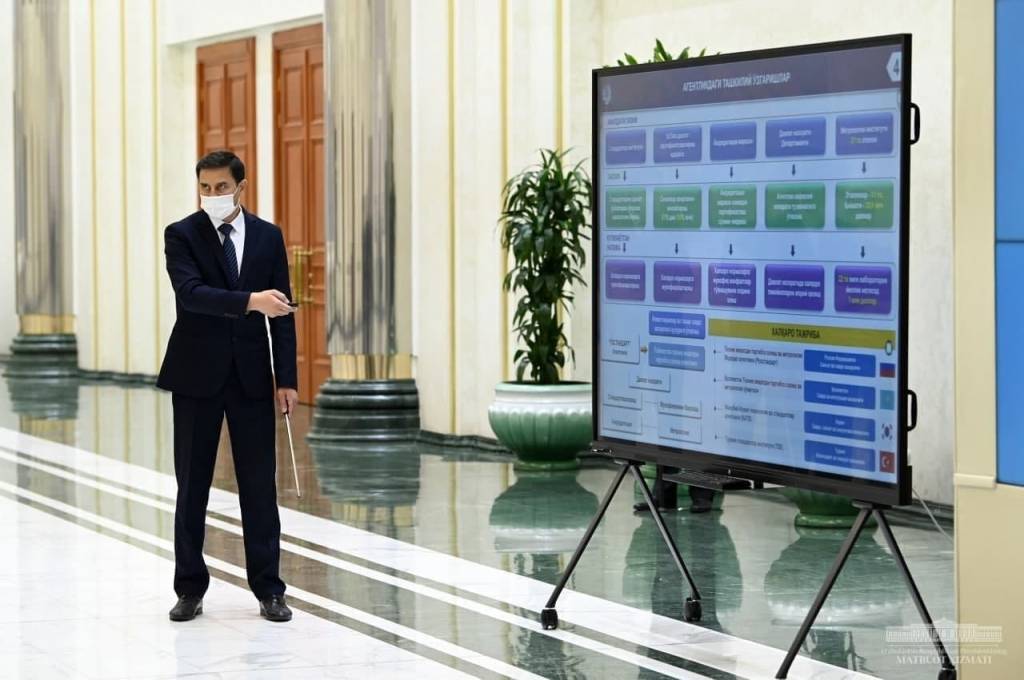
On May 17, President Shavkat Mirziyoyev got acquainted with a presentation of measures to improve the national system of technical regulation, standardization, certification and metrology.
Systematic work is underway in Uzbekistan to develop the industry, improve product quality and enter world markets. 19 thousand out of about 30 thousand internal standards have been harmonized with international norms, a register of international standards has been formed.
The use of 5.6 thousand outdated standards, which hindered the full-fledged operation of the mechanisms of a market economy, was discontinued, and 3.5 thousand standards were improved following modern requirements. Domestic analogs of 26 international technical regulations have been developed.
A quality system under Global GAP and Organic standards has been introduced at 260 agricultural production enterprises. Their international certification has been carried out.


32 enterprises in the textile industry have been certified according to Oeko-Tex standards. 21 enterprises have received the CE marking certificate required in the European Union.
Testing laboratories are being modernized. The quality of products imported from abroad is being checked.
There are many other problems related to standards in production, export and import that are required to be solved. Some procedures cause difficulties for entrepreneurs.
At the event, proposals for solving these problems and improving procedures were discussed.
Today, a certificate of conformity and a sanitary-epidemiological conclusion is required for 3.4 thousand types of products.
The Head of the state instructed the responsible persons to optimize the list of products subject to sanitary and epidemiological examination, to consider the issue of canceling the additional requirement for a certificate of conformity.
Control of imported products is carried out during the customs clearance process, which takes up to 60 days. In this regard, the task was set to introduce the procedure for placing the relevant documentation on the electronic customs platform at least 30 days in advance.
World experience is used when improving the sphere. Only 28 types of products with a very high degree of risk are subject to mandatory certification in Europe, the conformity of other types of goods is confirmed by declaration.



The need was noted for introducing a similar system as an experiment. At the initial stage, the procedure for declaring will be applied to about 800 types of products.
An instruction was given to adopting international standards instead of 11 thousand national standards that are not harmonized with international requirements and to start transferring all enterprises to the newly adopted standards from 2023.
The importance was noted for raising the activities of 20 testing laboratories in the Uzstandard Agency system to the international level, having established an assessment of compliance with international standards, first of all, for food, agricultural products, electrical engineering, light industry, hygiene and perfumery products, and building materials.
It was emphasized that it is necessary to help enterprises in obtaining international certificates for the widespread use of the EU’s GSP+ system preferences.
The task was set to clearly define the powers of responsible agencies based on the norms of the Agreement on Technical Barriers to Trade and the Agreement on the Application of Sanitary and Phytosanitary Measures of the World Trade Organization.
UzA








